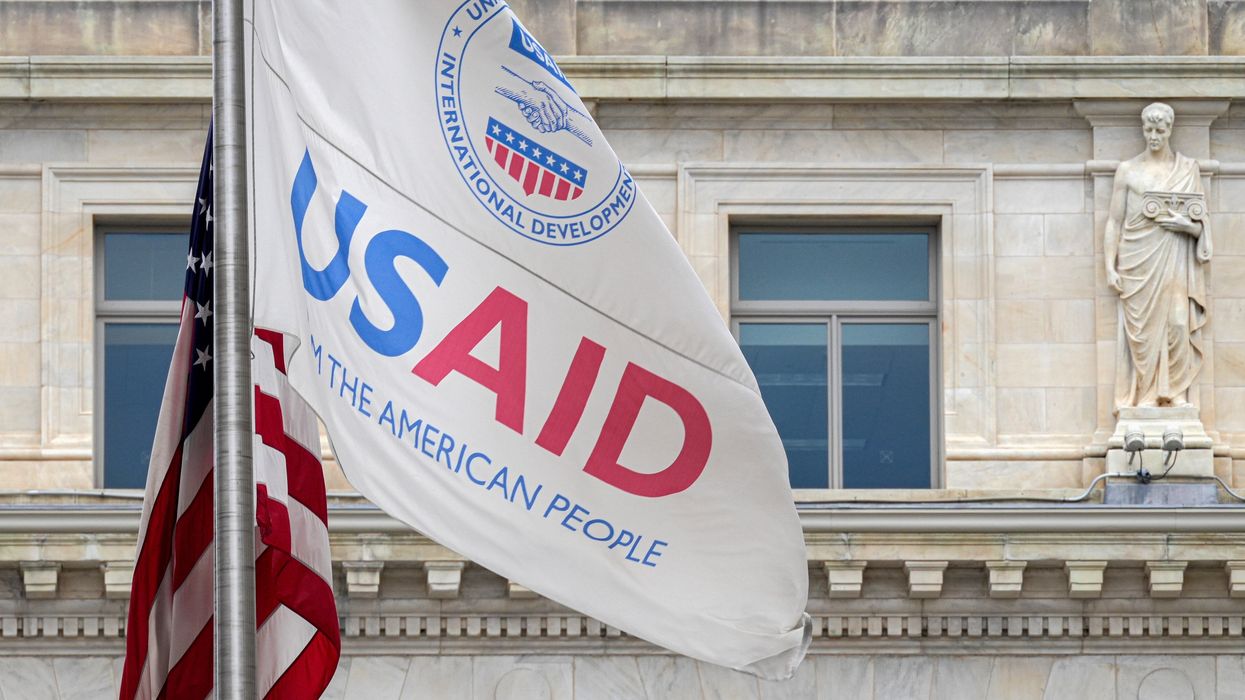Our ongoing series, “Just the Facts,” strives to approach news stories with both an open mind and skepticism, so we may present our readers with a broad spectrum of viewpoints through diligent research and critical thinking. As best we can, we look to remove personal bias from our reporting and seek a variety of perspectives in both our news gathering and selection of opinion pieces.
How much and what percentage of total foreign aid has been cut since President Trump's inauguration?
Since President Trump's inauguration, the U.S. has significantly reduced its foreign aid budget. The Trump administration cut over 90% of USAID's foreign aid contracts, amounting to approximately $60 billion. This dramatic reduction aligns with the administration's "America First" agenda, which prioritizes domestic interests over international aid.
What percentage of the total budget is the $60 billion dollars cut from foreign aid?
The U.S. federal budget for the fiscal year 2024 was approximately $6.75 trillion. If we compare $60 billion to this total, it represents about 0.89% of the entire budget.
Are there any legal challenges to the foreign aid the Trump administration has cut?
There have been legal challenges to the Trump administration's foreign aid cuts. One notable case involved a freeze on nearly $2 billion in foreign aid funding. A federal judge ruled that the freeze was unlawful, stating that it violated the separation of powers by overriding Congress's authority to allocate funds. The Supreme Court later declined to block this ruling, effectively requiring the administration to release the funds.
These legal battles highlight the tension between executive authority and congressional control over budgetary decisions.
Have the funds been released since the court ruling?
Following the court ruling, the Trump administration was ordered to release nearly $2 billion in frozen foreign aid payments. The funds were gradually disbursed to comply with the court's decision, although the process faced delays and logistical challenges. Some payments were released immediately, while others required additional reviews before being distributed.
Which department of the government is in charge of foreign aid, how many federal foreign aid workers have been fired, and how much money has been saved?
The U.S. Department of State and the United States Agency for International Development (USAID) are primarily responsible for managing foreign aid. The Office of Foreign Assistance within the State Department oversees the strategic direction and coordination of foreign aid programs.
Under the Trump administration, significant workforce reductions occurred at USAID. Reports indicate that nearly 1,600 USAID employees were laid off globally. Additionally, broader federal workforce cuts affected tens of thousands of employees across various departments.
As for savings, the Trump administration claimed that terminating foreign aid programs and reducing the workforce saved tens of billions of dollars. However, the exact financial impact of these workforce reductions alone isn't clearly documented.
Are there any legal challenges to the firing of government workers in departments that deal with foreign aid?
There have been legal challenges related to the firing of government workers in foreign aid departments. For instance, a recent court ruling issued a preliminary injunction against the suspension and termination of certain foreign aid contracts. This decision emphasized that the government must adhere to Congress's constitutional spending authority and process payments for completed work. However, the ruling did not fully block broader workforce reductions or terminations.
What are the 10 countries that have lost the most foreign aid?
The countries most affected by U.S. foreign aid cuts under the Trump administration include nations that heavily relied on USAID funding. Some of the hardest-hit countries are:
- Afghanistan
- Yemen
- South Sudan
- Syria
- Somalia
- Haiti
- Ethiopia
- Sudan
- Democratic Republic of the Congo
- The West Bank and Gaza Strip
These reductions have had significant impacts on humanitarian aid, development projects, and stability in these regions.
All data and information were obtained from Copilot, an AI-powered chatbot owned and operated by Microsoft Corporation.
David Nevins is co-publisher of The Fulcrum and co-founder and board chairman of the Bridge Alliance Education Fund.




















Trump & Hegseth gave Mark Kelly a huge 2028 gift